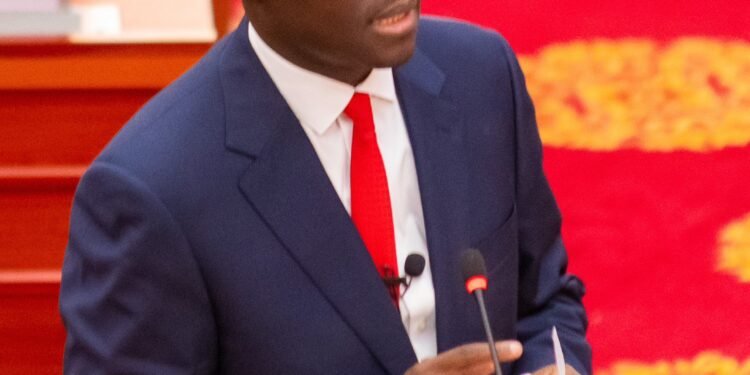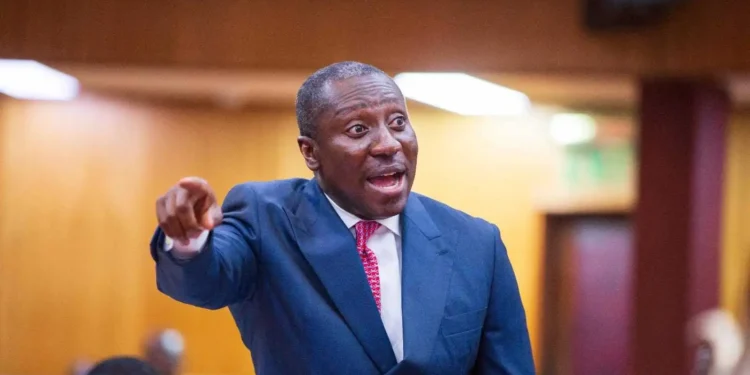In the wake of soaring Global oil prices triggered by renewed conflict between Israel and Iran, Ghana’s decision to suspend implementation of the Energy Sector Shortfall and Debt Repayment Levy (ESSDRL) has been described by policy analyst Alfred Appiah as a “measured and adaptive” move in uncertain times.
Appiah praised the government for pivoting away from rigid policy application in response to global disruptions.
“The government tried to take advantage of favourable macroeconomic conditions to generate additional revenue to address a problem. Its analysis showed that there wouldn’t be a significant impact on consumers in the near term.
“However, global shocks have changed the context, and the government has responded by suspending the additional levy until conditions improve.”
Alfred Appiah, renowned Policy Analyst
The ESSDRL, commonly dubbed the “Dumsor Levy”, was originally slated to begin on June 16, 2025. It would have imposed a GHS1 per litre charge on petrol and diesel, and 20 pesewas per kilogram of LPG, to generate revenue for clearing energy sector debts and bolstering power supply.
However, escalating tensions in the Middle East, particularly the missile exchanges between Israel and Iran, have led to sharp spikes in global oil prices. Brent crude surged from $60 to $74 per barrel in under a week, drastically shifting the economic calculus for Ghana—a country that relies heavily on petroleum imports despite being a crude oil producer.

President John Dramani Mahama, recently acknowledged the pressure and directed the Ministers of Finance and Energy to monitor developments and delay the levy until market conditions stabilise.
Alfred Appiah further highlighted the impracticality of assuming full insulation from international turbulence.
“No matter how robust your models and simulations were, there’s no way they could have predicted that Israel would launch missiles into Iran. So the government couldn’t have been that certain. That said, it has responded by suspending the levy until conditions become more favourable.”
Alfred Appiah, renowned Policy Analyst
Appiah further likened Ghana’s approach to flexible fiscal policy decisions taken in other countries.
“Recently in a Canadian province, the government decided to remove tax on fuel products when the price of crude got to a certain point. And then tax was imposed again when prices reduced beyond a threshold. That’s smart governance.”
Alfred Appiah, renowned Policy Analyst
Mixed Reactions Across Political Divide

Meanwhile, the political debate continues to heat up. Deputy Ranking Member of Parliament’s Energy Committee and MP for Afigya Kwabre North, Collins Adomako-Mensah, warned that Ghana’s economy could be seriously impacted if hostilities between Israel and Iran escalate further.
“We don’t live in an island. These are two oil-solution countries, and it is definitely going to have a toll on our oil prices. “I am just hoping that, as quickly as possible, peace is brought to reign. Otherwise, we should brace ourselves for very tough times ahead.”
Hon. Collins Adomako-Mensah, Deputy Ranking Member of Parliament’s Energy Committee and MP for Afigya Kwabre North
The Minority in Parliament, however, is unimpressed with the government’s postponement. Minority Leader Alexander Afenyo-Markin insists that the levy should be repealed entirely.
But Alfred Appiah countered this stance, suggesting the Minority’s reaction lacks nuance and risks politicising a pragmatic government response.
“Why is the minority trying to turn this into a gotcha moment about the impact of global shocks on the Ghanaian economy?
“In this case, the government is actually suspending an approved tax increase because of global shocks—it’s not introducing any new taxes. What am I missing?”
Alfred Appiah, renowned Policy Analyst

Ghana’s energy sector has long been plagued by financial shortfalls, unpaid debts, and infrastructure inefficiencies—issues the ESSDRL sought to address. However, critics point to the cumulative tax burden already faced by consumers, with fuel levies representing more than 20% of the pump price even before the new charge.
With the postponement in effect, the Ghana Revenue Authority (GRA) has assured stakeholders that a new implementation date will be communicated once conditions are deemed more favourable.
For now, Appiah and others argue that Ghana’s policy pivot reflects a more agile and context-sensitive governance model—one that balances fiscal needs with consumer realities.
“Policies don’t need to be set in stone. They must evolve with circumstances. That’s what good governments do.”
Alfred Appiah, renowned Policy Analyst
As the global oil market remains volatile and diplomatic efforts aim to reduce regional tensions, Ghana’s fuel pricing strategy will continue to be tested. But the government’s latest move may offer a blueprint for responsive and rational economic policymaking in uncertain times.
READ ALSO: Prof. Asare Demands Judicial Reforms, Condemns Delayed Justice























